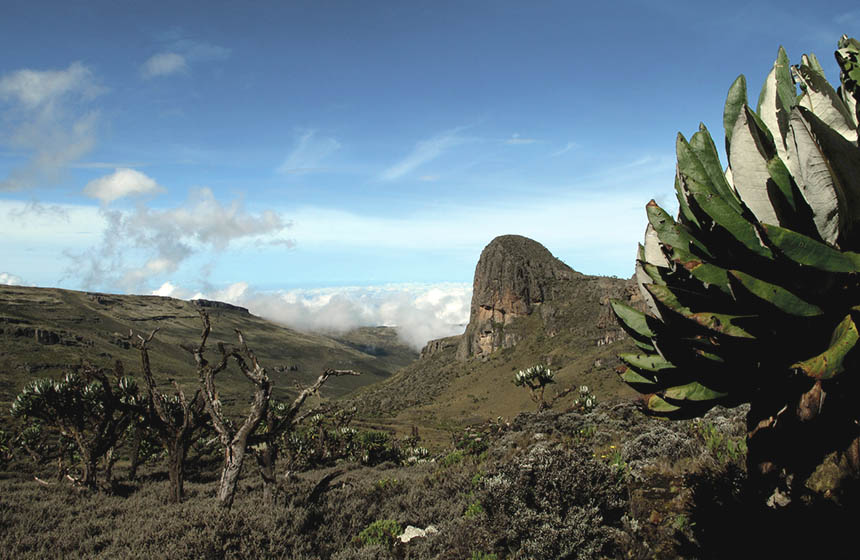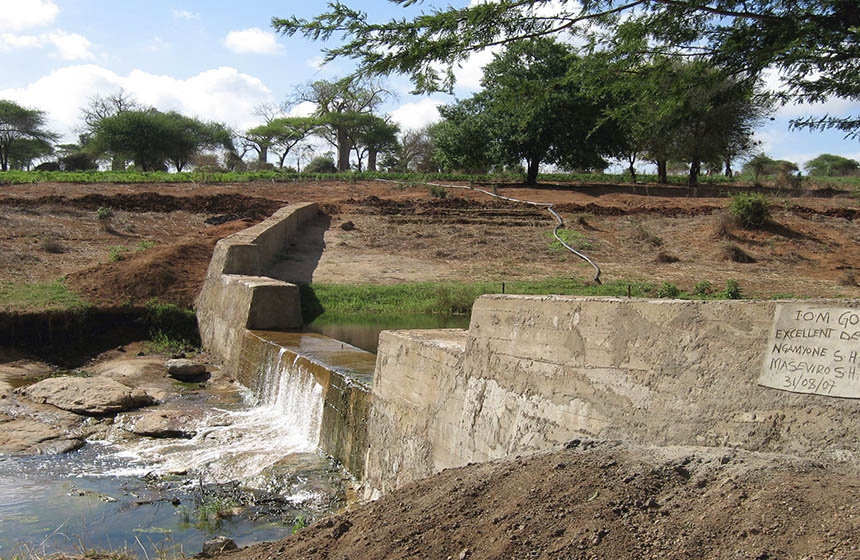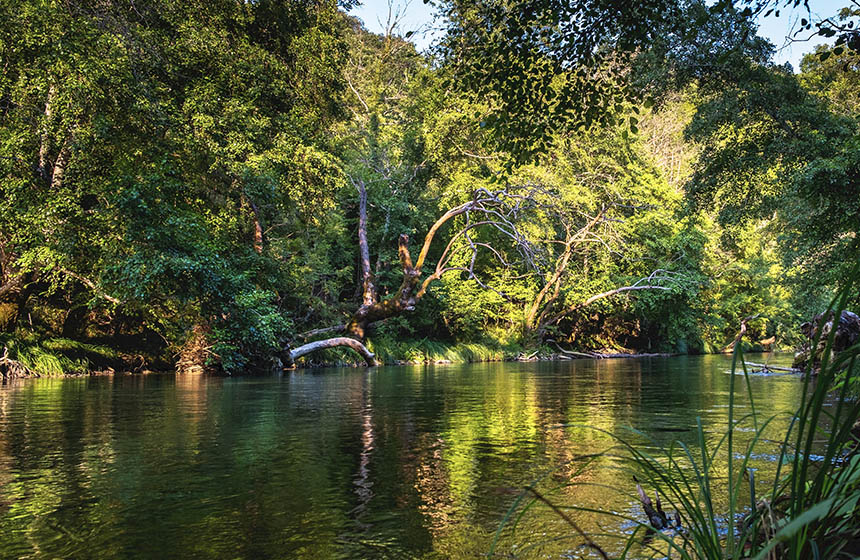Landscape restoration, sustainable agriculture, and water and soil conservation in a montane landscape
Populations in the Mount Elgon region of Uganda face imminent challenges as a result of climate change including increasingly erratic rainfall and the melting of snow and glaciers resulting in flooding and subsequent drought. Ecosystem-based adaptation approaches were implemented to restore degraded landscapes, encourage more sustainable agricultural methods, and conserve water and soil resources.
Nature-based Intervention:
Therefore, under the auspices of a multi-country effort led by the International Institute for Environment and Development, the International Union for Conservation of Nature, and the UN Environment World Conservation Monitoring Centre, local communities have participated in the implementation of various measures as part of an ecosystem-based adaptation scheme. First, more sustainable farming and irrigation practices have been encouraged to conserve water and soil including terracing, grass bunds and banks, hedgerows, agroforestry, mulching, the use of bio-fertilizer, farming along contour lines. Furthermore, reforestation, agroforestry, and riverbank restoration efforts aimed to restore ecosystem health. The introduction of fuel-efficient stoves have also reduced deforestation impacts as demand for firewood has decreased.
Overview of context and outcomes:
The districts of Kween, Kapchorwa, Sironko and Bulambuli in the Mount Elgon region are already facing significant climate change-induced challenges. Rising temperatures are predicted to melt glaciers and snow inducing flooding followed by drought. Rainfall is also expected to be delivered in extremes, with more intense rain in the wet season and less rain in the dry season. These changes have already greatly affected agricultural productivity and provoked more flooding, dry spells, landslides, and soil erosion. Efforts to recover agricultural yields have led to the overexploitation of ecologically sensitive areas and encroachment upon river banks compromising water availability and quality. Deforestation, poor land management, and unsustainable farming practices compound these issues by causing soil degradation and erosion.
Case effectiveness on
Climate change
Soil and water conservation practices are reported to have reduced soil erosion, flooding, and landslides. The ability to harvest crops during droughts has reportedly improved, according to interviews with local communities. Soil conservation measures have been found to enhance the moisture retention capacity of soils reportedly improving water security. Soil conservation measures have also reportedly improved soil productivity. The introduction of improved agricultural practices has reportedly increased yields, albeit with short-term losses caused by a reduction in available land as a result of vegetable and tree planting.
Ecosystem health
Ecological effect: PositiveTree planting has reportedly helped address soil erosion and community interviewees agreed that ecosystem resilience had increased due to the implemented interventions. Forested and grassland areas are now considered to be more resilient to climate change as a result of a decreased risk of landslides and an increased ability to cope with extreme events. The observed increase in water flow has reportedly increased vegetation growth. The tree-planting in turn improves the retention of available water improving the quality of the water catchment area.
Socioeconomic outcomes
The introduction of improved agricultural practices has reportedly increased yields improving the incomes of farmers and likely contributing to local food security. An observed more stable water supply has resulted in local health benefits. The intervention aimed to build local institutional capacity to maintain the benefits of the interventions.
Governance
The IUCN worked with multiple branches of the federal government, local governments, Members of the Mount Elgon Conservation Forum, and the Makerere University Institute of Natural Resources to implement and manage this project.
Finance
This project was funded by the Federal Ministry for the
Environment, Nature Conservation, Building and Nuclear Safety.
Monitoring and evaluation
There is participatory monitoring program in the area, where monitoring, reporting, and verification are conducted by the local community. A baseline survey was conducted at the start of this project in order to compared changes over time.
Trade-offs and limitations
Some of the changes implemented lead to short term reductions in food production capacity as areas were restored and previously farmed lands were seeded with native vegitation.
Conducted at landscape scale
Ecosystem type
- Montane/Alpine
- Terrestrial production
Climate change impacts addressed
- Loss of food production
- Drought
- Freshwater flooding
- Glacial retreat & decreased snow cover
- Mudslides / Landslides
- Reduced water availability
- Soil erosion
Instigators
- International development organization
- International conservation/environment organization
- National government/agency
Societal challenges
- Biodiversity conservation
- Climate change adaptation
- Disaster risk reduction
- Economic and Social development
- Rights/empowerment/equality
- Food security
- Health
- Water security
Outcomes
- Food security: Mixed
- Water security: Positive
- Health: Positive
- Local economics: Positive
- Livelihoods/goods/basic needs: Not reported
- Energy security: Not reported
- Disaster risk reduction: Positive
- Rights/empowerment/equality: Positive
- Conflict and security: Mixed
- No. developmental outcomes reported: 8
Resources
Read resource 1Read resource 2
Literature info
- Grey literature




